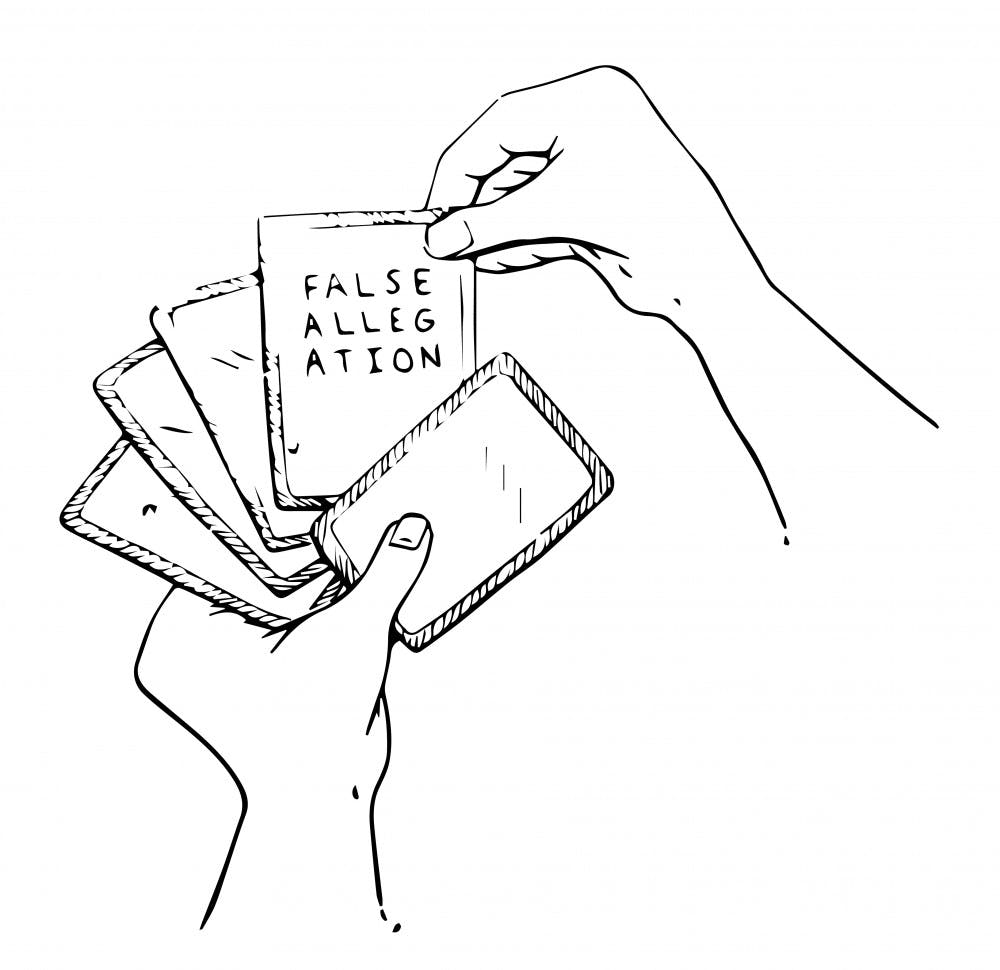The alleged Nov. 17 assault in which a man forced his way into a young woman’s apartment and sexually assaulted her at gunpoint did not, as it turns out, actually happen, according to the Indiana Daily Student.
During the course of the Bloomington Police Department’s investigation of the alleged incident, the woman admitted she had known the man and that he had not, in fact, assaulted her. The man in question claimed there had been a monetary dispute between the two of them and said he believes the woman’s allegations were an attempt to retaliate against him.
While it is still unclear exactly what happened that night, this Editorial Board unanimously decries false accusations of sexual assault, which is what this young woman’s original account seems to be.
Keeping in mind it is not at all uncommon for rape victims to be pressured into recanting allegations of sexual assault that actually did occur, we do not want to claim to know what really happened. We don’t know if a rape took place or not.
But we think it is important to begin to have a conversation about false rape accusations and how they hurt literally everyone.
The most obvious victim is of course the falsely accused. While legal punishment for rape remains astonishingly rare — an analysis by the Rape, Abuse and Incest National Network found that only 2 percent of rapists ever spend a day in jail — being accused of rape is no small matter and can have profound and real consequences for the accused.
Another group that suffers when false accusations of rape are made is the not-insignificant number of survivors of rape and sexual assault, many of whom never reported the attacks. These survivors often experience victim-blaming or are even accused of lying when they do come forward. Claiming to have been assaulted when you were not is a huge slap in the face to all survivors.
Not only is it enormously disrespectful, claiming rape when there was none can add to the already tremendous amount of skepticism with which survivors’ stories are often approached. Particularly when the accused rapist is popular, powerful or well liked, a survivor might see people flock to her or his rapist’s defense.
Even women who have never been sexually assaulted lose when false allegations of rape are made. Many so-called “men’s rights advocates” insist that the phenomenon of false accusations is much more prevalent than is commonly believed. Blogs like “Community of the Wrongly Accused,” suggest that rape is a “handy excuse” women can use to escape the consequences of their illicit sexual encounters. Each and every actual case of false allegations of rape plays into this dangerous narrative of women as vindictive liars hell-bent on destroying men’s lives.
Anyone who falsely accuses another person of rape — and this Editorial Board does not claim to know whether the woman who reported the Nov. 17 incident is or is not engaging in this — clearly does not understand the full weight of their actions.
Whether what occurred that night was rape or just a dispute over money, the fear that many women feel at IU and in Bloomington — not to mention everywhere else — is well founded and very real. Women really do get raped, and the fear of rape and sexual assault leads women to engage in a variety of defensive and pre-emptive tactics to try to protect themselves.
We say that rape is a serious crime that should be taken seriously, and part of taking it seriously is to not claim that a rape occurred unless it actually did.




